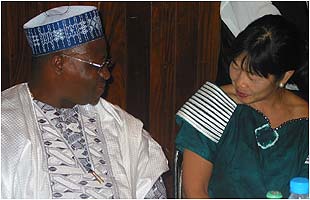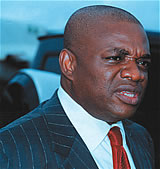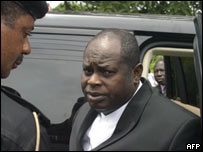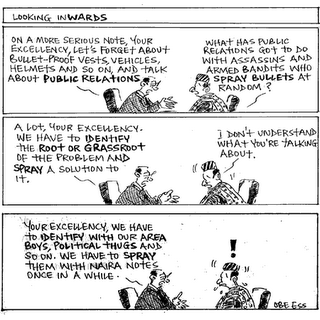Nigerian Fuel Pipeline Explosions – Cost of Kleptocracy.
Fuel shortage in Nigeria is perennial, at least since the mid-1980s. With a runaway population growth, increased vehicular traffic and grossly inadequate electricity generation and supply, the demand for petroleum products far outstrips supply. Most of the petroleum products are regulated, refined and marketed by the Ministry of Petroleum Resources and the Nigerian National Petroleum Corporation (NNPC) owned facilities. These facilities, wholly owned by the Government, are managed by a band of mediocre and corrupt bureaucrats. They are run down and consistently operate far below capacity, leading to the perennial shortages suffered in the country.
It has been alleged that apart from acts of frank graft, the bureaucrats that run these facilities deliberately mismanage and neglect maintenance of these production and distribution facilities as a means of creating artificial scarcities so that their cronies, associates and front corporations would be awarded lucrative contracts to import the scarce products, a process initially instituted to bridge the supply gap that would ensue when these facilities are temporarily shut down for maintenance.
Then there are those criminal gangs, who break the pipes to steal petroleum products for sale in the black market. The Movement for the Emancipation of the Niger Delta (MEND) is alleged to have started off like this before graduating to crude oil bunkering, piracy and kidnapping. These illegal bunkerers, whose operations sometimes include highly placed government civil service and military officials are usually well organized with elaborate distribution systems and sophisticated arms to fight off law enforcement agents as they perpetrate the crime. These criminals leave in their wake busted pipes that leak fuel into the ecosystem constituting various environmental and safety hazards. Often, these abandoned busted pipes become pots of gold to the local community, when they easily accessible. Rather than report the hazard to the police and concerned authorities, these locals scurry to siphon as much fuel as they can to sell in the black market. Using Jerry cans and all sorts of improvised vessels, these locals besiege the hazardous breached pipes, often in frenzied fractious droves that break out in frequent bouts of fisticuffs and eventually ending in a catastrophe.



What happened at Abule Egba/Awori, Lagos on December 26, 2006 is rather tragic. Some have said the victims brought it on themselves, since clearly, they were stealing from the ruptured pipes. But really it is not as simple as that. With an existing petroleum product shortage, a large army of largely unenlightened, unemployed, poor and desperate citizens, the ruptured pipe gushing precious fuel must have been very tempting, despite the dangers involved in "getting a piece of the action." It was reported that the pipe had been broken at least three days earlier by some illegal bunkerers, who had only abandoned the scene hours before the explosion.
It bugles the mind that all through out the three days the thieves were in control of the broken pipe, none of the locals reported the case to the police. Perhaps someone did, but as is characteristic of the police, they did not respond, perhaps for fear of being out-gunned by the bunkerers. Or, it may be that the police was even in complicity with the criminals, hence their non-show during the three-day operation. Also, is it possible that the NNPC, to which the pipes belong, did not detect the breached pipe on time? This is hard to believe, since all it will take to detect this is a vigilant human monitor to notice the discrepancy between the volumes pumped and received. Besides, the pipelines are purportedly rigged with electronic pressure monitoring systems that automatically trigger off when the pipelines are tampered with or have a break. This would have been set off as soon as the bunkerers struck were it working as it should.
The Nigerian citizenry needs to resolve to stanch this dangerous trend. More than 2000 have died as a result of this illegal activity alone within the past few years. Nigerians need to demand better policing and maintenance of petroleum facilities. They need to stop colluding with illegal fuel bunkerers and criminals, and report suspicious activities to law enforcement authorities. Of course, the government on its own part needs to address the issue of unemployment and poverty, and the issue of inadequate training and equipment of the law enforcement agencies. Perhaps the way to go with the perennial fuel shortages is complete privatization of the production and distribution facilities, with the government fully divesting its commercial interests in the industry, providing only regulatory and monitoring services through its agencies. 
GLOSSARY OF NIGERIA PIPELINE DISASTERS
Dec 2006: At least 280 killed in Lagos
May 2006: At least 150 killed in Lagos
Dec 2004: At least 20 killed in Lagos
Sept 2004: At least 60 killed in Lagos
June 2003: At least 105 killed in Abia State
Jul 2000: At least 300 killed in Warri
Mar 2000: At least 50 killed in Abia State
Oct 1998: At least 1,000 killed in Jesse, Delta State





















